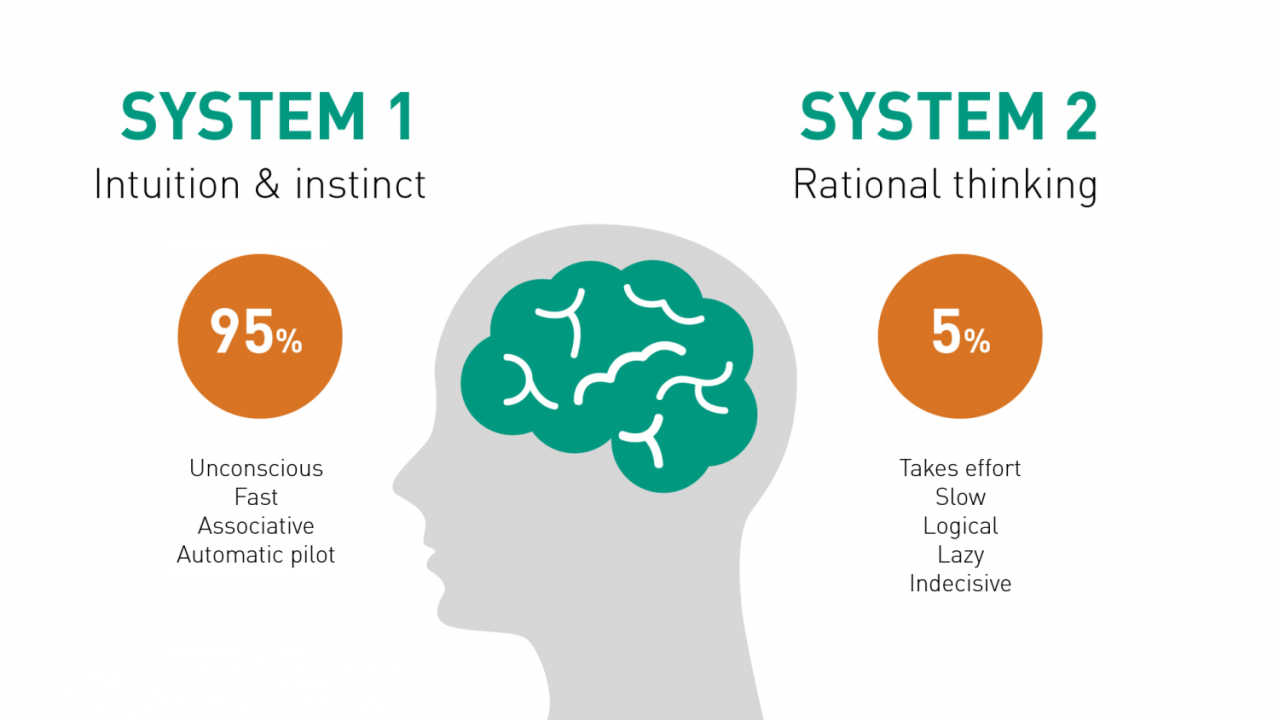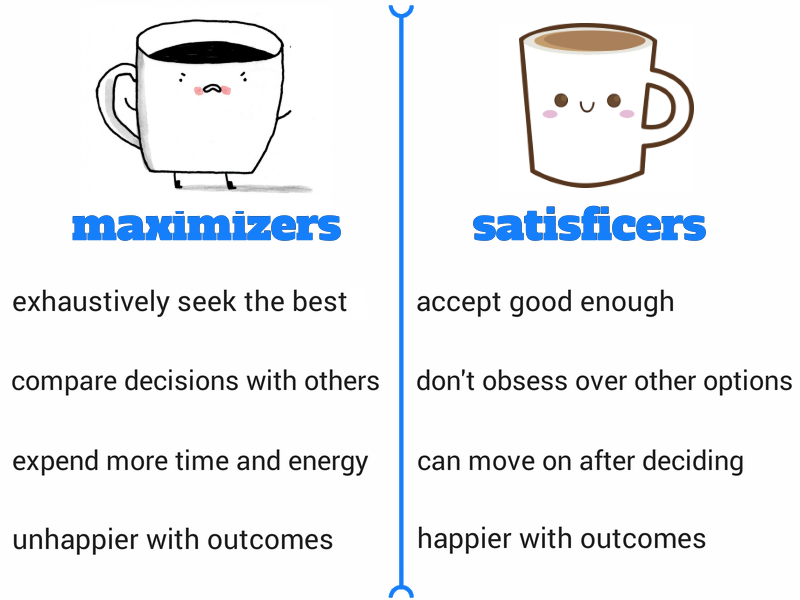Mastering Decision-Making: Unveiling the Secrets of Your Cognitive Styles

Making decisions is an inherent part of our daily lives. From choosing what to wear in the morning to deciding on important career moves, our lives are filled with countless choices. But have you ever wondered what influences the way we make decisions?
Why do some people rely on their intuition, while others meticulously weigh every option? In this article, we will delve into the fascinating world of decision-making styles and explore how understanding these styles can enhance our ability to make informed choices. Get ready to uncover the secrets of your cognitive styles and master the art of decision-making!
Meet System 1 and System 2

Our decision-making process involves a dynamic battle between two cognitive systems: System 1 and System 2.
System 1 is fast and intuitive, relying on patterns and instinct. It operates automatically, making quick decisions based on gut feelings. On the other hand, System 2 is slow and rational, engaging in deliberate and analytical thinking. It takes its time to weigh evidence, consider consequences, and make logical choices. Understanding this duo and finding the right balance between intuition and analysis can lead to wiser decision-making. So, the next time you face a decision, pause and consider which system is guiding you.
Intuitive vs. Rational
In the realm of decision-making, some of us lean towards intuition, while others lean towards rationality.
Intuitive decision-makers, influenced by System 1, rely on gut feelings and instinct. They make quick choices based on implicit knowledge and past experiences.
On the other hand, rational decision-makers, influenced by System 2, engage in a more deliberate and analytical process. They carefully analyze information, weigh the pros and cons, and make logical decisions. Understanding your inclination towards intuition or rationality allows you to harness the strengths of both systems and make well-rounded choices.
Maximising vs. Satisficing

When it comes to decision-making, we also fall into two cognitive styles: maximising and satisficing.
Maximisers strive for the optimal choice, carefully weighing the pros and cons. They invest time and effort in exploring all available options, aiming for the best possible outcome. However, maximisers often experience decision fatigue and may face regrets over missed opportunities.
Satisficers are content with finding a solution that is good enough to meet their needs. They focus on efficiency and simplicity, making decisions more swiftly. By understanding your style, you can manage analysis paralysis and strike a balance between thoroughness and contentment.
Combinatorial vs. Positional
Goals play a significant role in decision-making, and our cognitive styles are influenced by how we approach these goals.
Combinatorial thinkers possess a laser-like focus on specific, well-defined objectives. They break down their goals into manageable steps, strategize, and analyze options to achieve their desired outcomes.
In contrast, positional thinkers embrace flexibility when goals are less clear. They make decisions to minimize risks, adapt to changing circumstances, and create favorable positions. By understanding these styles, we can align our decision-making approach with the nature of our goals, whether they require a structured plan or a more adaptable mindset.
The DECIDE Framework: Your Guide to Smarter Decisions
Being aware of our decision-making styles is the first step, but shaping them requires practical tools and frameworks. One such framework is the DECIDE model, a simple yet effective guide to making smarter decisions. Let's break it down:
- Define the problem: Clearly identify the decision you need to make and understand its significance.
- Establish criteria: Determine the factors that are important to consider in your decision-making process.
- Collect information: Gather relevant information from reliable sources, such as research studies, expert opinions, and personal experiences.
- Identify alternatives: Generate a range of possible options or solutions that could address the problem or fulfill your goals.
- Deliberate and evaluate: Carefully analyze each alternative, weighing the pros and cons, considering potential risks and rewards, and evaluating their alignment with your criteria.
- Make a decision: Based on your analysis, choose the option that best aligns with your goals, values, and desired outcomes.
- Implement your decision: Put your chosen option into action, taking the necessary steps to execute your decision effectively.
- Evaluate the results: Assess the outcomes of your decision and reflect on its effectiveness. Learn from both successes and failures to improve your future decision-making.
The DECIDE framework provides a structured and systematic approach to decision-making, enabling you to consider multiple perspectives, gather relevant information, and make informed choices. By incorporating this framework into your decision-making process, you can navigate complex decisions with more clarity and confidence.

Congratulations! You've embarked on a journey to master the art of decision-making by unraveling the secrets of your cognitive styles. Understanding the interplay between intuitive and rational thinking, recognizing your tendencies towards maximising or satisficing, and embracing the combinatorial or positional approach to goal attainment empowers you to make more intentional decisions.
Remember, decision-making is a skill that can be honed and refined. By employing tools like the DECIDE framework, you can navigate the complexities of decision-making with greater ease and effectiveness. Whether you're facing personal choices, professional decisions, or life-altering crossroads, the knowledge and insights gained from understanding your decision-making styles will guide you towards making choices that align with your values, goals, and overall well-being.
So, as you embark on your decision-making journey, trust yourself, embrace both intuition and analysis, and leverage the strengths of your cognitive styles. With each choice you make, you become more adept at navigating life's challenges and carving a path towards a brighter future.
Now, armed with the wisdom of your cognitive styles and the tools of effective decision-making, go forth and conquer the decisions that shape your life. May each choice be a step towards your desired outcomes, personal growth, and fulfillment. Happy decision-making!